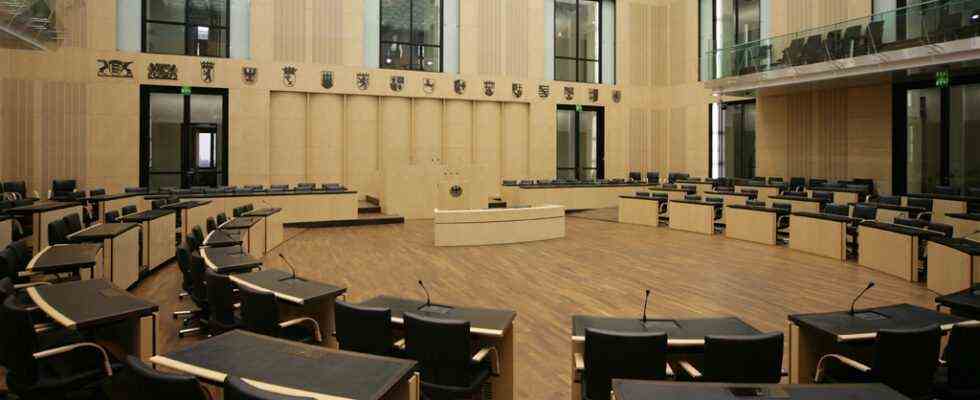Status: 11/18/2021 9:46 p.m.
Several Union-led federal states are giving in: The heads of government of Bavaria and North Rhine-Westphalia now want to approve the infection protection law of the traffic light parties in the Federal Council. This would block the resolutions from the table.
In the Union, the resistance to the new Infection Protection Act is crumbling. Just yesterday, leading politicians announced that the CDU and CSU would reject the law in the Federal Council. Because from their point of view, the resolutions do not do justice to the drama of the situation – this is how the epidemic emergency should end.
But after the federal-state summit, some of the federal states led by the Union have now changed their minds. The former critic, North Rhine-Westphalia’s Prime Minister Hendrik Wüst, announced in the “Current Hour” of the WDR assumes that his government coalition will approve the draft amendment of the Berlin traffic light parties to the Infection Protection Act.
After the federal-state summit on the corona situation, Wüst was satisfied with the agreements on the new infection protection law. The federal government has promised that the toolkit contained in the law will be evaluated by December 9, said the current chairman of the conference of ministers presidents in Berlin.
The Union-led countries continued to consider a “sufficient toolbox” to be necessary in the fight against Corona, said Wüst. The NRW head of government had threatened to reject it on Wednesday. In a letter to the likely future Chancellor Olaf Scholz (SPD), he described the law as “not capable of approval” in the Federal Council. In the ARD daily topics he mapped out: The abolition of the epidemic situation of national scope was the wrong signal.
Söder for improvement, praise from Günther
Bavaria’s Prime Minister Markus Söder (CSU) also wants to give up his previous position. “We will support this law,” he said in Munich. It is not perfect, but significantly better than the first draft of the possible future federal government. In view of the current situation, a blockade is also not appropriate.
However, he believes that the law is insufficient and will have to be improved in the foreseeable future. The situation is getting worse every day, but the possible instruments are “fewer and much more blunt”. Nevertheless, Bavaria will agree to the law in the Bundesrat, after all, it is “better than nothing” and any delay would be fatal.
Schleswig-Holstein’s Prime Minister Daniel Günther (CDU) in Kiel praised the Infection Protection Act. He is satisfied with the version that has now been passed by the Bundestag, which is why his country will agree. From the point of view of the coalition of CDU, Greens and FDP, the instruments for the countries in the fight against the virus are sufficient.
Dependent on votes from the Union
This means that the Infection Protection Act of the traffic light parties in the Federal Council should no longer threaten to be blocked. The SPD, Greens and FDP do not have their own majority there and are dependent on the votes of the countries in which the Union is involved in government. Now they will probably achieve the required majority in the regional chamber. Otherwise the necessary consultations would have led to a delay.
Greens parliamentary leader Katrin Göring-Eckardt previously urged approval. “The drama is considerable. We are in an emergency situation. In hospitals in particular. We have to react to that,” said Göring-Eckardt of the dpa news agency. “Now, consistently and together. Party-political differences have to take a back seat.”
Lower Saxony’s head of government Stephan Weil (SPD) said that the amendment should by no means fail due to resistance from individual states in the Federal Council. “We have a shared responsibility,” he appealed to the Union. But he is “in good spirits” that the CDU and CSU support the new regulations made by the Bundestag in their further deliberations.

